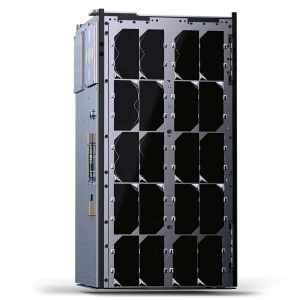What’s Holding EU’s Space Ecosystem Back?

- Stuck in Orbit: Europe’s space sector sustains “zombie companies” through grants and political contracts, preventing both failure and true growth.
- Broken Incentives: Profitability is punished, risk-taking avoided, and funding favors connections over capability—stifling innovation and driving talent away.
- Needed Reform: Fund results, not promises; let failing firms close; and separate defense priorities from commercial space ventures.
- Bottom Line: Without bold structural change, Europe risks fading into irrelevance in the global space race..
Europe’s space sector stands at a critical crossroad. Despite decades of investment, world-class engineering talent, and ambitions to rival global leaders, the continent is increasingly falling behind in the commercial space race. The uncomfortable truth is that Europe has inadvertently engineered a space economy that systematically prevents both natural failure and explosive growth—creating a landscape dominated by what can only be described as “zombie companies” that neither die nor truly thrive.
This structural dysfunction was starkly illuminated in a recent conversation with Luca Rossettini, CEO of D-Orbit, a rare European space success story that has scaled to 600 employees. What makes his perspective particularly valuable is how his company has managed to achieve substantial growth despite, rather than because of, the European funding environment.
What exactly constitutes a “zombie company” in the space sector? These are entities that persist for years or even decades without developing commercially viable products or achieving meaningful revenue—yet continue to exist through a complex web of grants, subsidies, and politically-allocated contracts.
“Most of them are getting very expensive NGO programs,” Raychev observed. “I don’t believe when someone tells me ‘I’m pre-revenue’—how many years are you pre-revenue then? In any other economic sector, you can’t afford to have a company that has not even profitability, not even revenue for ten years. This is not normal.”
The European grant structure itself discourages marginality and profitability. Small companies receive grants that require co-investment with “zero marginality or even negative marginality,” creating perverse incentives that punish rather than reward commercial success. Meanwhile, programs with potential for profitability remain accessible only to established players.
While European space procurement processes nominally embrace competition, the reality often resembles theater rather than true market dynamics. Tenders are frequently “ridiculously described to fit an exact frame of an exact solution” that matches predetermined winners—usually established players with political connections rather than superior capabilities.
This creates a paradoxical environment: enough support to prevent natural business failure, but insufficient opportunity for ambitious companies to achieve escape velocity. As Rossettini notes from personal experience: “Ten years after, they are still 20 people and I’m 600 people.”
Key Insight: The problem isn’t that Europe doesn’t fund space companies—it’s that it funds them in ways that inhibit both natural selection and explosive growth.
The consequences extend beyond individual companies to the continent’s overall competitiveness. When procurement decisions are made through political relationships rather than objective capability assessment, resources flow to maintenance of the status quo rather than breakthrough innovation.
The zombie company phenomenon creates cascading negative effects throughout the ecosystem:
- Innovation deficit: Companies focus on securing the next grant rather than developing truly disruptive technologies
- Resource misallocation: Limited capital flows to politically-connected entities rather than high-potential ventures
- Talent drain: The most ambitious professionals leave for more meritocratic markets
This last point represents perhaps the most significant long-term threat. “A lot of high caliber, high quality real leaders in European defense and space are shifting gears to wherever they can find an open and transparent market,” Raychev observed, noting that talented individuals naturally “want to compete, you want to grow, you want to have hyper growth.”
Understanding why this dysfunctional system persists requires examining institutional incentive structures. Public servants administering space programs face asymmetric risks: they receive little reward for successful innovation but face severe penalties for perceived failures.
“Put yourself in the shoes of the public servant,” Rossettini suggests. “If that guy does a good job, no one is going to say, ‘oh good job.’ But if that guy for some reason makes a mistake, everybody’s going to blame that person.” The result is a system that is “forced not to take decisions, not to take risks.”
This risk aversion permeates the entire ecosystem, creating a deep cultural resistance to the very idea of failure—which paradoxically makes actual failure at the systemic level increasingly likely as Europe falls further behind more dynamic markets.
Addressing these structural problems requires fundamental reforms rather than incremental adjustments:
- Implement outcome-based procurement that pays for results, not promises
As Raychev puts it, European agencies should say: “This is what we need. We don’t define the technology that is required. We don’t define the standards. We don’t define anything… If you give me this, I’m going to pay you.” This approach rewards capability over connections. - Allow non-viable companies to fail as a necessary part of ecosystem health
The natural culling of unsuccessful ventures isn’t cruelty—it’s the prerequisite for a healthy, innovative sector. Resources currently sustaining zombie companies could be redirected to high-potential ventures. - Separate strategic capabilities from commercial services
For truly strategic capabilities like launch, “take it away from the space budget. Use the defense budget,” Rossettini suggests. This allows for maintaining sovereign capabilities while enabling true competition in commercial services.
Implications for Stakeholders
For Startups: Focus on building space services with demonstrable value rather than optimizing for grant acquisition. Seek investors who understand the European context but demand global competitiveness.
For Investors: Look for satellite companies breaking free from grant-dependency cycles and demonstrating commercial traction despite the system rather than because of it.
For Policymakers: Recognize that the current approach isn’t protecting European space leadership—it’s eroding it. Restructure procurement to reward outcomes over relationships.
Europe stands at an inflection point. The global space economy is evolving rapidly, with private capital, innovative business models, and technological breakthroughs creating unprecedented opportunities. Yet Europe risks missing this revolution not from lack of talent or resources, but from structural flaws in how it organizes its space economy.
The first step toward recovery is acknowledging the zombie company problem. The next—and more difficult—step is finding the institutional courage to implement reforms that will initially appear disruptive but ultimately create the conditions for a more vibrant, competitive European space sector. Without such courage, Europe risks becoming an increasingly irrelevant player in the most dynamic frontier of human enterprise.
This article is based on an episode of The Frame Podcast, hosted by EnduroSat.
Tune in for the complete discussion on your favorite platform.


































